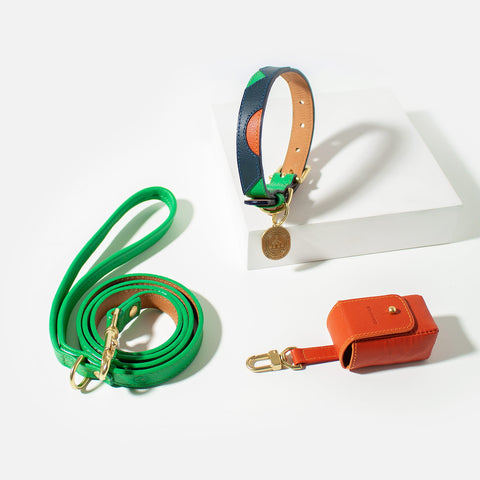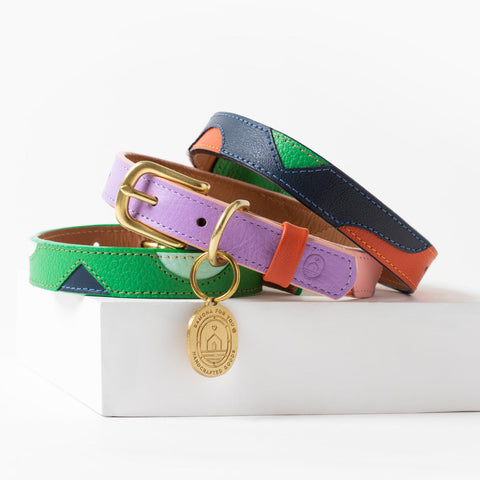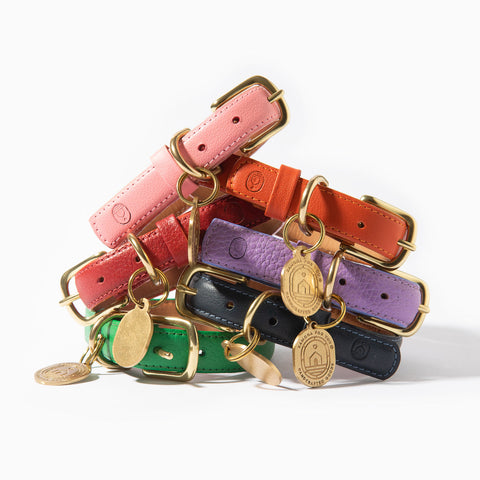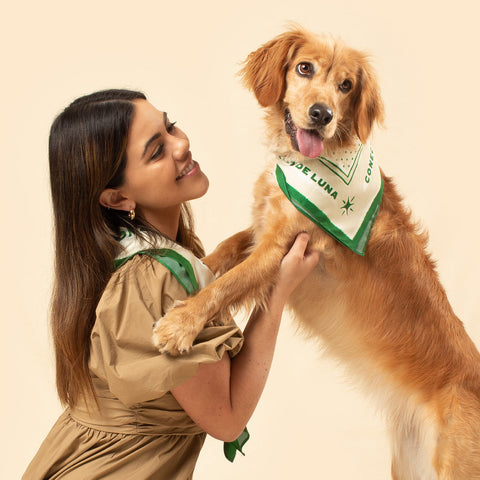I've been a pet owner since I was 5 years old. My first dog was a Mini Schnauzer, Perdita, which my parents bought when me and my sister were just kids. She lived a full 16 years, passing away when I was 21. Two years later, I bought another Mini Schnauzer, Ophelia, who still lives at my parents' house because they couldn't bear to let her go when I got married. In my last year living at home, as I was engaged to my fiancè (now husband), I knew I needed a dog in my life.
That's when I decided to adopt Matilde. This was a new experience for me, as I had always had Schnauzers and was comfortable with the breed's characteristics. The uncertainty of adopting a different breed, specially mutts, was a bit daunting. But when I saw Matilde (she was just 4 months old) on the shelter’s page, I immediately called to ask about her personality. I wanted to know if she was balanced, dominant, or anything else that might affect her fit with the chapter I was about to start.
I loved the experience. Now, Mati is 3 years old, and last September, we adopted Adelina, another mutt. I now know that adopting dogs can be a wonderful experience, and it's often the best decision ever. Here are some things to consider before adopting based on my experience:
1. Be Prepared for Growth Surprises
If you adopt a puppy, be open-minded about the fact that they could grow larger than expected. Shelters can provide estimates, but puppies can surprise you with their growth spurts.
2. Ask About the Dog's Personality
Understanding a dog’s personality is crucial. This helps determine if the dog will fit into your lifestyle and household dynamics. Ask if they are balanced, dominant, shy, or energetic.
3. Time Commitment with Puppies
Adopting a puppy requires a significant time commitment. Puppies are full of energy and mischief. If you want to avoid the puppy stage, consider adopting a dog that is 9 months to a year old.
4. Observe the Mother and Litter
Sometimes, the puppy’s mother is still at the shelter. Observing her behavior can give you an idea of the puppy’s potential temperament. Remember, each puppy is unique and their behavior will also depend on the training and dedication you provide.
5. Health and Medical History
Always ask for the dog’s health and medical history. This includes vaccinations, any known health issues, and whether the dog has been spayed or neutered. Understanding these factors can help you prepare for any potential medical expenses and care needs.
6. Lifestyle and Activity Level
Consider your lifestyle and activity level. Some dogs require more exercise and mental stimulation than others. Make sure you choose a pet whose needs align with your daily routine and energy levels.
7. Long-Term Commitment
Adopting a pet is a long-term commitment. Dogs can live up to 15 years or more, so be sure you’re ready for the responsibility and changes this will bring to your life.
Conclusion
Adopting a pet is a fulfilling journey filled with joy, laughter, and the occasional challenge. By considering these points, you can ensure that you’re fully prepared for the adventure ahead. Remember, at Ramona For You, we’re here to help you and your new furry friend every step of the way.
So, are you ready to open your heart and home to a new best friend? Trust us, the rewards are worth it. Now, off you go – there’s a wagging tail or a purring bundle of joy out there waiting just for you.
FAQs
Q: How much should I budget for a new pet? A: Initial costs can range from $500 to $1,500, with annual costs averaging $1,000 to $2,000 depending on the pet and its needs.
Q: What’s the best pet for a small apartment? A: Cats, small dog breeds, senior dogs or low energy dogs, even certain small mammals like rabbits and hamsters can thrive in smaller spaces.
Q: How do I know if I’m ready for a pet? A: Assess your lifestyle, budget, time, and space. If you can confidently manage these, you’re likely ready for a pet.
Q: Are there hypoallergenic pets? A: A: Yes, breeds like Poodles, some Terriers, and certain cat breeds are considered hypoallergenic, but individual reactions can vary. I believe Matilde is a Schnauzer mix and she doesn't shed, but Adelina sheds a lot.
Q: What are some essential pet accessories? A: Start with a comfortable bed, a slow feeder bowl (shelter pups often eat very fast because they've experienced hunger; this will also keep them mentally stimulated), quality food, mentally stimulating toys like a Kong or puzzles to prevent them from chewing on things they shouldn't, grooming supplies, and a stylish collar from Ramona For You ;)













